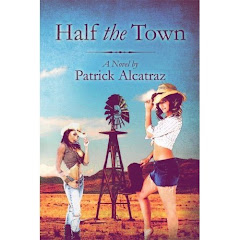 By Patrick AlcatrazEditor
By Patrick AlcatrazEditor
New York, N.Y. - It's only a few blocks from the Havana NY restaurant on W. 38th Street to the New York Public Library on Fifth Avenue, yet there is a neat disconnect between what you find inside both buildings. The eatery offered a hefty and thoroughly-enjoyable plate of Ropa Vieja (shredded beef, white rice, black beans), while the library threw a bad dish of Nazi whippings in World War II France. It was a day for stuffing the tummy and, then later, feeding the brain. I love Cuban food with my history lessons.
Ana was our waitress. She's a peppy 20-year-old transplant from Mexico City by way of Los Angeles. Her lively, raven eyes alone are worth flying here from Texas, yes. Petite is in when the day's activities include checking out anything French. Miguel, the bus boy from the Mexican state of Guerrero, chatted nicely about living and working in The Big Apple. Ana was up for flirting, but as it so happened, I was dining with my daughter, and she does not like to see her old man in the hunt for romance.
In any case, we had our usual lunch treat in what is becoming my latest Culinary Tour. Twenty-nine dollars and change for lunch. I paid, my daughter Gabrielle left the tip (her Old Man does not believe in tipping, forever noting that it lets restaurant owners off the pay scale hook). So, that done, we bid farewell to Ana and her lovely, lovely smile and walked back out to W. 38th before walking toward Fifth Ave.
The New York Public Library is many things to many patrons. It was hosting an exhibition of All-Gayness on the third floor. We hung around the first floor, where we popped-in to check out a spectacular display of French and German memorabilia being offered as "Between Collaboration and Resistance: French Literary Life Under Nazi Occupation."
Right up my alley, I know, I know.
And so we hung around for more than hour, looking at and reading the many elements of the free exhibit. There were great black and white photographs, sad, sad letters and a collection of notebook pages from manuscripts that later became great books - like "The Lover" by French writer Marguerite Duras, a favorite of mine. The book was made into a movie, and that one, too, is worth the time and money.
Yet, the collection sent a singular message: life for writers under Adolf Hitler was no looking out a window for inspiration. Many Frenchmen, including writers, fought with the resistance even after the Germs invaded and conquered France. There was the writing, but there also was courage from book printers and publishers who took to the underground to make sure France would not be seen by the world as merely cowering to the brutes from Berlin. A handful of diaries also are on exhibit, as are now-grainy films made during the Nazi invasion and the resulting occupation. In stirring accounts (translated on accompanying wall mountings), the French writers told of being forced to leave their creative comfort, easy travel, freedom to say or write anything. In a series of bombings and tank asaults, those freedoms vanished from one day to the next. The Winter of 1943-44 was especially rough, with food being rationed. Travel was reduced to forced travel: prisoners being led to concentration camps erected by the occupying Nazis. Censorship cropped-up, as did a paper shortage. France's writers could only inhale and hope for an invasion by the Allies. Many of them took up arms. The story of writer Robert Antelme, Duras's husband, is particularly wild. He survived, but only after being held prisoner. As love would have it, his wife later divorced him and took up with his film director friend. But, yeah, what else is new? Even in the worst of times, well, the heart must be fed. Marguerite Duras fought off loneliness in her own way - in the arms of her husband's friend.
Still, she wrote this to Antelme when she was told he had survived the camps: "You are alive! You are alive! I, too, am coming back from I know not where. How long have I remained in this Hell? ...Be prudent. No alcohol, not a drop. The weather's beautiful. It's peace. I think I would have died of your death."
Women are funny that way, eh?
The evening would fall fast, a cool breeze sailing in from the Atlantic. We were headed for The White Horse Tavern in Greenwich Village at sundown. It's all I needed to know. I was sure of this: Something nagged me about whether I'd rather have gone back to the Cuban restaurant for another smile from Ana, the attractive waitress, or perhaps spent much more time reading about French writers living in fear of Hitler.
I fully enjoyed both - like some Guy at a bordello taking two sweethearts and then having to choose one or the other with the last of the cash...
- 30 -
 "Yeah, I could eat a horse..." - Rey Guevara, at the Mexico City earthquake, 1985
"Yeah, I could eat a horse..." - Rey Guevara, at the Mexico City earthquake, 1985














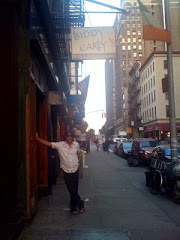


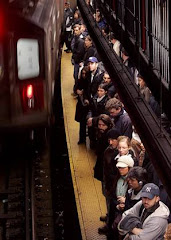





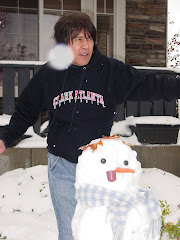
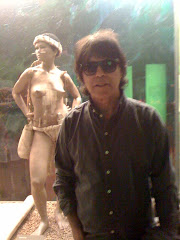

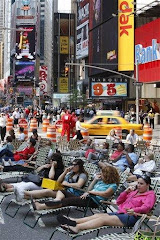.jpg)
